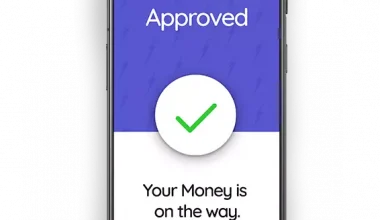Ever feel like there just aren’t enough hours in the day to juggle school, work, maybe even a family? You’re not alone! Trying to figure out how much school you can handle can feel like a puzzle sometimes. There’s the full-time student route, where you just get into classes. But there’s also the part-time option, which lets you take things at a slower pace.
So, what’s the right choice for you? This blog is your guide to navigating the world of full time vs part time students.
We’ll break down the key differences between full-time and part-time enrollment in a way that’s easy to understand. We’ll also talk about the pros and cons of each path, so you can decide which one best fits your lifestyle, your goals, and maybe even your sanity!
Table of contents
- Who is a Full Time Student?
- Who is A Part-Time Student?
- What are the benefits of being a Full Time Student?
- What are the benefits of being a part-time student?
- How does being a full-time student affect financial aid eligibility?
- Factors To Consider When Choosing Between Being a Full-Time Student vs Part-Time Student
- Is it possible to switch from being a full-time student to a part-time student?
- Difference between Full Time Student vs. Part-Time Student
- FAQs
- Conclusion
- References
- Recommendations
Who is a Full Time Student?
A full-time student is an individual who is enrolled in an educational program or institution and carries a full course load, typically defined by the institution. The specific definition of full-time status may vary among institutions and countries, but it generally refers to students who are enrolled in a predetermined number of credits or courses that meet the institution’s requirements for full-time study.
Full-time students typically dedicate a significant portion of their time to their studies, attending classes, participating in academic activities, and completing coursework regularly. They often take a higher number of courses per semester or term compared to part-time students, allowing them to progress through their degree program at an accelerated pace.
Being a full-time student often comes with certain benefits, such as access to a wider range of financial aid opportunities, eligibility for certain scholarships or grants tied to full-time enrollment, and enhanced access to on-campus resources and facilities. However, it also requires a greater time commitment and may limit flexibility in balancing other personal or professional obligations.
You should also read: 10 Reading Scholarships for College Students in 2024
Who is A Part-Time Student?
A part-time student is an individual who is enrolled in an educational program or institution but carries a reduced course load compared to full-time students. Similar to full-time status, the specific definition of part-time status may vary among institutions and countries.
Part-time students typically take fewer courses or credits per semester or term, allowing them to have a more flexible schedule and allocate time for other commitments such as work, family, or personal obligations.
They have the opportunity to spread out their coursework over a longer period, which can be advantageous for individuals who need more flexibility in managing their time or have other responsibilities that limit their availability for full-time study.
Usually, most students especially ones without sponsors for their education go for this. They often have the option to customize their course load based on their circumstances, which can help them maintain a better work-life balance. However, being a part-time student may have implications for financial aid eligibility and access to certain benefits or resources that are typically available to full-time students.
Check out this article: Can You Work Full Time and Study Full Time in the UK?
What are the benefits of being a Full Time Student?
Being a full-time student offers several benefits that can positively impact your educational experience and prospects. Here are some key benefits of being a full-time student:
Accelerated Degree Completion
Full-time students typically carry a heavier course load, enabling them to complete their degree requirements within the traditional timeframe. This means you can graduate sooner and enter the job market or pursue further education more quickly.
Enhanced Academic Focus
With a full-time commitment to your studies, you have the opportunity to fully immerse yourself in your academic pursuits. This focused approach can lead to deeper learning, better retention of knowledge, and a more comprehensive understanding of your field of study.
Access to Financial Aid
Many financial aid programs, scholarships, grants, and tuition assistance opportunities are specifically available to full-time students. These financial resources can help alleviate the burden of educational expenses and make pursuing higher education more affordable.
Potential for Full-Time Employment Opportunities
Some internships, co-op programs, and job opportunities are specifically geared toward full-time students. These experiences can provide valuable real-world exposure, and practical skills, and potentially lead to full-time job offers upon graduation.
Seamless Academic Progression
Full-time enrollment ensures a smooth academic progression, with structured course offerings and a clear path to completing prerequisites and degree requirements. This can help you stay on track and avoid potential scheduling conflicts or delays in your academic journey.
You should also read: How Many Hours Is Classed As Full-time Education In The UK?
What are the benefits of being a part-time student?
Being a part-time student offers several benefits that can cater to individuals with specific circumstances or commitments. Here are some key benefits of being a part-time student:
Flexibility in Schedule
Part-time students have the advantage of a more flexible schedule compared to their full-time counterparts. This flexibility allows them to balance their education with other commitments, such as work, family responsibilities, or personal pursuits. It provides the opportunity to create a schedule that suits their individual needs and enables them to manage their time more effectively.
Reduced Course Load
Part-time students typically take a lighter course load, allowing them to focus more deeply on each course. This can lead to a more thorough understanding of the material, enhanced critical thinking, and improved academic performance. The reduced workload can also alleviate stress and provide a more manageable pace for learning.
Work-Life-Education Balance
Part-time study can be ideal for individuals who wish to continue working while pursuing their education. It allows them to maintain employment or explore professional opportunities while advancing their academic goals. This balance between work, life, and education can be beneficial for personal and financial stability.
Networking Opportunities
Part-time students often have the chance to connect with a diverse group of individuals, including fellow students, working professionals, and industry experts. This networking can facilitate valuable connections, mentorship opportunities, and professional growth, contributing to future career prospects.
How does being a full-time student affect financial aid eligibility?
Being a full-time student can impact your financial aid eligibility in several ways. Here are some considerations:
- Access to More Financial Aid Opportunities: Full-time students often have access to a wider range of financial aid opportunities compared to part-time students. This can include scholarships, grants, work-study programs, and institutional aid that are specifically designated for full-time students. These additional funding options can help offset the cost of tuition, fees, and other educational expenses.
- Eligibility Requirements: Some financial aid programs or scholarships may have specific eligibility requirements tied to full-time enrollment. This means that to qualify for certain types of financial aid, you may need to maintain a minimum course load or credit requirement as defined by your educational institution. Failing to meet these requirements may affect your eligibility for certain aid programs.
- Adjustments in Financial Aid Awards: The amount of financial aid you receive, such as need-based aid or federal grants, may be based on your enrollment status. Full-time students may be awarded higher amounts of aid compared to part-time students due to the assumption that they have a greater need for financial support to cover a more substantial portion of their educational expenses.
- Impact on Loan Repayment: If you have taken out student loans, your enrollment status can impact the repayment terms. Full-time students typically have a grace period after graduation before they are required to start repaying their loans. Part-time students may have different terms and conditions for loan repayment, depending on their loan agreements and enrollment status during the repayment period.
You should also read: Is Apprenticeship a Full-time Education in the UK? 2024 Student FAQ
Factors To Consider When Choosing Between Being a Full-Time Student vs Part-Time Student
When deciding between being a full-time student or a part-time student, several factors should be considered. Here are some key factors to help you make an informed decision:
- Time Commitment: Consider your availability and the amount of time you can dedicate to your studies. Full-time study requires a significant time commitment, with more classes, assignments, and studying.
- Financial Considerations: Evaluate your financial situation and the impact of your chosen enrollment status. Full-time study may qualify you for a wider range of financial aid opportunities, scholarships, or grants that are specifically available to full-time students.
- Degree Completion Timeline: Consider your desired timeline for completing your degree. Full-time study typically allows for faster degree completion since you are taking a higher course load. If you have specific time constraints or career goals that require timely completion of your degree, full-time study might be more suitable.
- Personal Circumstances: Evaluate your circumstances, such as family responsibilities, work commitments, or other obligations. The full-time study may require a greater sacrifice of personal time and limit your availability for other responsibilities. Part-time study offers more flexibility to balance your personal life, work, and education, allowing you to manage your commitments more effectively.
- Academic Goals and Intensity: Reflect on your academic goals and the level of intensity you desire in your studies. Full-time study often provides a more immersive academic experience, with a higher workload and a focused approach to learning.
It can be helpful to consult with academic advisors, financial aid offices, and individuals who have experience with both full-time and part-time study to gather insights and make an informed choice that aligns with your needs and aspirations.
Is it possible to switch from being a full-time student to a part-time student?
Yes. It is generally possible to switch from being a full-time student to a part-time student, although the specific procedures and policies may vary depending on your educational institution. Here are some key points to consider:
- Institutional Policies: Familiarize yourself with the policies and guidelines of your educational institution regarding changes in enrollment status. Institutions may have specific deadlines or procedures for switching from full-time to part-time study. Consult your academic advisor or the registrar’s office to understand the process and any potential implications.
- Academic Progress: Consider the impact of switching to part-time study on your academic progress and degree requirements. Evaluate whether the change will affect your ability to complete your program within your desired timeframe or if it will alter your course sequencing or availability of certain courses. Work with your academic advisor to develop a plan that ensures a smooth transition and keeps you on track toward your educational goals.
- Visa or Immigration Considerations: If you are an international student studying on a student visa, switching from full-time to part-time study may have implications for your visa status. It is crucial to consult with your institution’s international student office or an immigration advisor to understand the rules and regulations related to your visa status and any necessary procedures or documentation for the change.
- Personal and Professional Considerations: Evaluate your circumstances and reasons for wanting to switch to part-time study. Consider factors such as work commitments, family responsibilities, or other obligations that may be better accommodated by a part-time schedule. Assess the impact on your work-life balance, personal well-being, and ability to engage in other activities outside of academics.
You should also read: Pros and Cons of Being a Part-Time Student: Jobs to Explore
Difference between Full Time Student vs. Part-Time Student
| Aspect | Full-Time Student | Part-Time Student |
| Enrollment Status | Enrolled in a full course load as defined by the institution | Enrolled in a reduced course load compared to full-time |
| Time Commitment | Requires a significant time commitment for classes and study | Provides more flexibility in managing time and other commitments |
| Degree Completion | Can complete degree requirements within the traditional timeframe | May take longer to complete degree requirements |
| Financial Aid Eligibility | Access to a wider range of financial aid opportunities | Limited availability of some financial aid programs tied to full-time status |
| Work-Life Balance | Limited flexibility in balancing work and personal commitments | More flexibility to balance work, family, or personal obligations |
| Campus Involvement | More opportunities for campus activities, clubs, and events | May have limited availability for campus involvement activities |
| Access to Resources | Enhanced access to on-campus resources and facilities | Access to resources, but potentially limited compared to full-time |
| Academic Intensity | May take longer to complete the degree requirements | Lighter course load, allowing for a more relaxed pace and deeper exploration |
| Graduation Timeline | Can graduate sooner and enter the job market or pursue further education more quickly | May take longer to complete the degree program |
| Personal Circumstances | Less flexibility to accommodate other personal or professional commitments | More flexibility to manage personal obligations alongside studies |
The specific details and implications of full-time and part-time study can vary among institutions and countries. This table provides a general overview of the main differences between the two enrollment statuses.
FAQs
Yes, it is possible to work while being a full-time student, but it can be challenging to balance both commitments effectively. It is important to consider the potential impact on your academic performance and personal well-being. Time management and prioritization skills are crucial to ensure success in both areas.
Yes, part-time students may still be eligible for financial aid, although the types and amounts of aid available may vary compared to full-time students. It is recommended to consult with the financial aid office of your educational institution to explore the specific financial assistance options for part-time students.
While both full-time and part-time students can pursue successful careers, the impact of your student status may vary. Full-time students often have the advantage of completing their degree requirements more quickly, allowing them to enter the job market sooner.
In many cases, it is possible to switch between full-time and part-time status, depending on the policies of your educational institution. However, it is important to consider potential implications such as changes in financial aid eligibility, course availability, and degree completion timeline.
Part-time study offers several benefits, especially for individuals with personal or professional commitments. It allows for greater flexibility in managing work, family, or other obligations. Part-time students can maintain a more balanced lifestyle while pursuing their education.
Conclusion
Choosing between full-time and part-time study is a critical decision that impacts a student’s academic journey, personal commitments, and prospects. By understanding the differences between these two options, students can make informed choices that align with their unique circumstances and goals.
References
- indeed.com– Full-time vs. Part-time students
- collegeraptor.com– full-time student hours
- mydegreeguide.com– Full-time vs. Part-time student
- bau.edu– Full-time vs. part-time student





